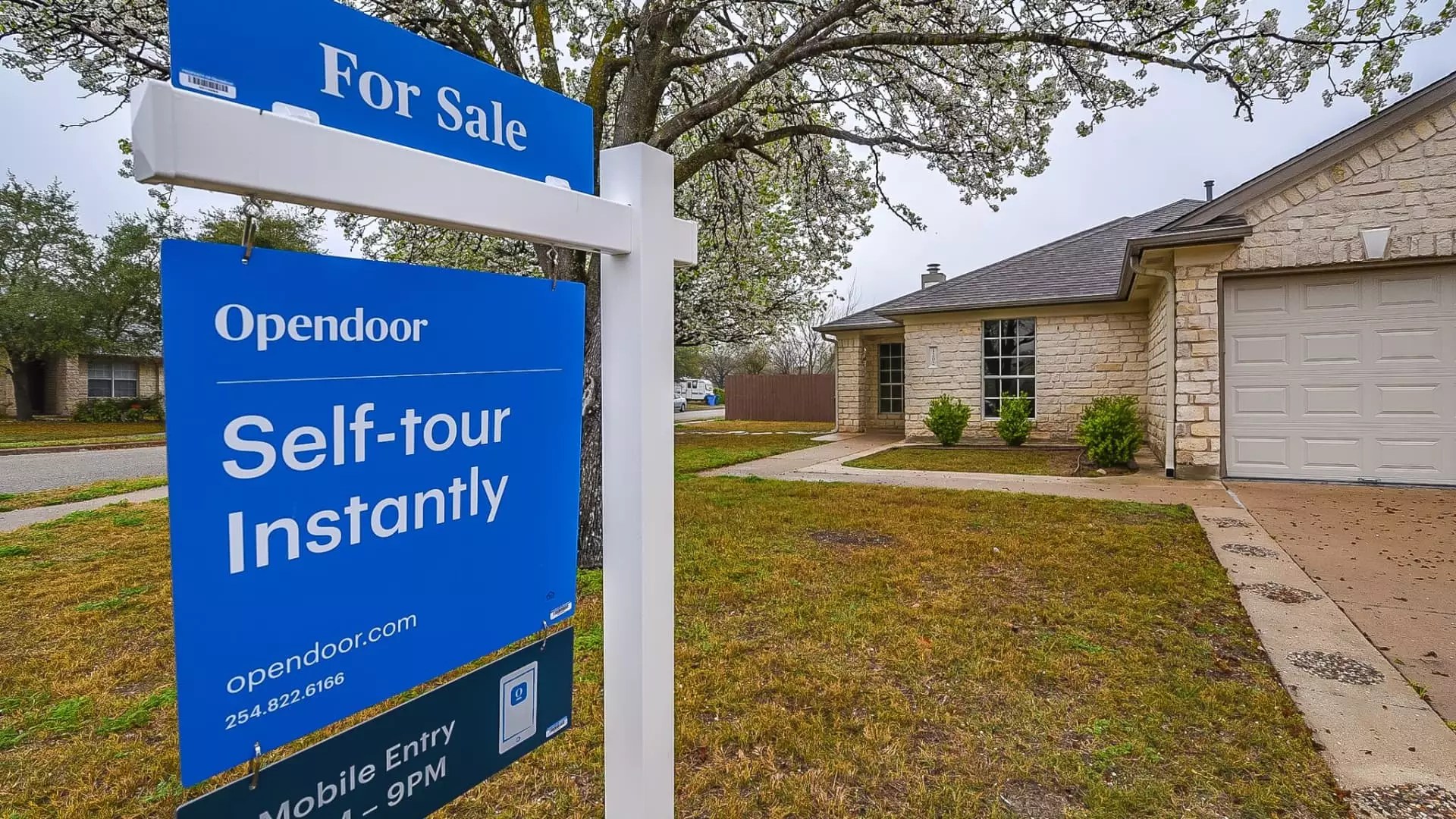Opendoor’s recent surge in stock price appears more like a fleeting mirage than a sign of genuine revival. The company’s shares have skyrocketed nearly fivefold since July, a move driven largely by investor enthusiasm and some high-profile backers, rather than substantive business improvements. This meteoric rise masks the underlying fragility of Opendoor’s financial health and its uncertain future. Despite CEO Carrie Wheeler’s optimistic tone and enthusiastic acknowledgment of shareholder interest, the reality remains stark: the company is still grappling with declining revenue, mounting losses, and a shrinking market footprint.
What’s particularly troubling is the disconnect between market speculation and the company’s real operational improvements. The push into a less capital-intensive referrals model—heralded as the “most important strategic shift”—may signal a prudent diversification effort, but it also exposes Opendoor’s pending dependency on a fragile and unpredictable housing market. The company’s previous struggles, exacerbated by rising interest rates that dampened home sales, have yet to be fully remedied. Short-term gains fueled by investor euphoria risk diverting attention from the critical, unresolved issues in their core business.
Speculation Vs. Reality: The False Promise of Market Resurgence
Much of the recent stock mobility is rooted in the strategic bets of hedge fund managers like Eric Jackson, who positioned themselves believing in an imminent turnaround. Jackson’s projection of an $82 stock price looks more like wishful thinking rather than credible valuation. His case hinges on an optimistic assumption: that Opendoor can revive its revenue growth and reclaim market share. However, recent earnings paint a less promising picture. The company’s revenue might see a significant decline in the upcoming quarter, undermining any hopes for quick recovery.
The evidence suggests that the housing market remains battered. Persistently high mortgage rates have throttled demand, leading to record levels of new listings and a significant decline in home sales. In such an environment, Opendoor’s core business of buying and reselling homes becomes increasingly precarious. The notion that a streamlined referral model can sustain or grow the business ignores the fundamental economic headwinds they face. Market forces are asserting themselves—high borrowing costs and low buyer demand are unlikely to be reversed in the near term.
Risks Masked by Short-Term Gains
While the company reports narrowed losses and slight revenue upticks, these figures are deceptive in the grand scheme. A net loss of only $29 million still signifies substantial ongoing losses, and projected revenue figures suggest a sharp downturn ahead. The decision to reduce marketing expenditure indicates a retreat from aggressive growth—yet it also signals a lack of confidence in the near-term prospects.
The real challenge for Opendoor lies in its ability to adapt to a sluggish housing market without further diluting investor confidence with hollow promises of growth. Moving away from iBuying to a referral-based model might reduce capital expenditure, but it doesn’t address the core issue: the market still favors cautious sellers and hesitant buyers. Until macroeconomic conditions shift favorably, the company’s hopes for a swift rebound seem overly optimistic.
The Central Question: Can Hope Overcome Reality?
Perhaps the most troubling aspect of Opendoor’s recent optimism is its reliance on hope rather than evidence. The company’s leadership appears to believe that if they can just improve visibility and tell their story to a broader audience, they might revive investor confidence. But storytelling cannot replace strong fundamentals. The hype-driven rally masks the fact that Opendoor’s business model is fundamentally fragile in the current economic environment.
From a center-left liberal standpoint, this situation underscores the danger of speculative bubbles fueled by short-term hype and high expectations. When market optimism outweighs reality, investors risk supporting fragile companies and inflating valuations based on hope rather than sound fundamentals. It points to the necessity of prudent oversight and skepticism, especially when the macroeconomic winds threaten to overshadow corporate narratives. Long-term sustainability hinges on genuine operational improvements, not fleeting market sentiment.

